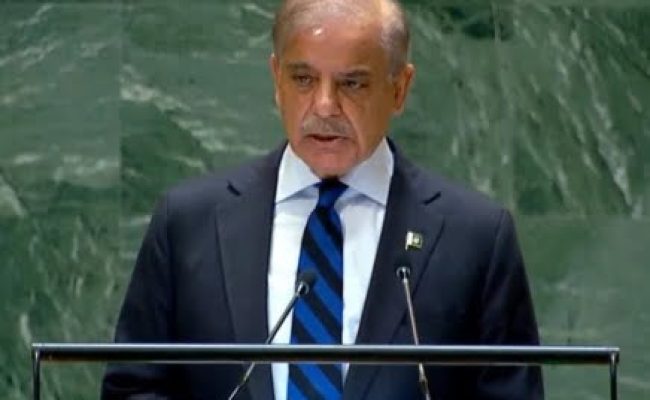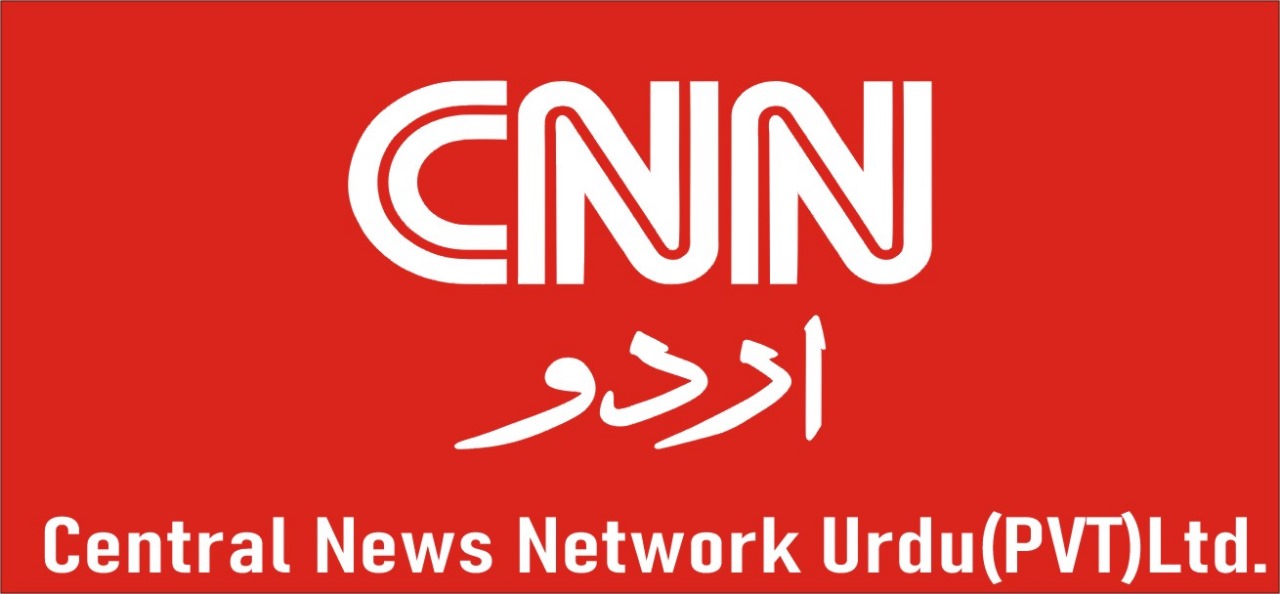By Abid Chaudhry
TWA
______
Prime Minister Shehbaz Sharif addressed the 79th session of the United Nations General Assembly (UNGA) on Friday, delivering a powerful speech that touched on a range of urgent global issues. His remarks focused on Israel’s military actions in Gaza, the unresolved Kashmir dispute, the global climate crisis, and the international community’s failure to uphold justice and human rights.
Sharif began his address with a recitation from the Quran and expressed his pride in representing Pakistan for the second time at the General Assembly. He congratulated the newly elected president of the UNGA, Dennis Francis, and reaffirmed Pakistan’s steadfast commitment to the UN Charter.
“Our founding father, Quaid-e-Azam Muhammad Ali Jinnah, declared that Pakistan stands by the United Nations Charter, and we remain committed to peace and prosperity for the world,” Sharif said.
“We have taken tough but necessary measures that have rescued our economy from collapse. As a result, inflation is down, and economic growth prospects have revived,” he said.
Shehbaz Sharif also highlighted Pakistan’s efforts in combatting terrorism, noting that the country had paid a heavy price, losing 80,000 people, including civilians and security forces, and incurring $150 billion in economic losses. He condemned the resurgence of terrorism by groups such as the Tehreek-e-Taliban Pakistan (TTP), Balochistan Liberation Army (BLA), and other extremist factions, vowing to eliminate the threat through Pakistan’s “Azm-e-Istehkam” (Resolve to Promote Stability) initiative.
“We are determined to eliminate this threat through our comprehensive national effort,” Sharif declared.
Regional cooperation and connectivity
Sharif praised the progress of the China-Pakistan Economic Corridor (CPEC), particularly the second phase of the project, which focuses on infrastructure, renewable energy, and technology investments. He highlighted the role of the Special Investment Facilitation Council (SIFC) in promoting regional connectivity and geo-economics, which he described as key to securing “win-win outcomes” for the region.
Sharif reiterated Pakistan’s commitment to peace and stability in Afghanistan and called for international assistance to address the humanitarian crisis in the country. He also emphasised the need for the Afghan Interim Government to respect human rights, particularly those of women and girls, and take effective action against terrorist groups.
Islamophobia and global unity
Sharif expressed concern over the rise of Islamophobia, pointing to recent desecrations of the Quran, attacks on mosques, and the negative stereotyping of Muslims. He specifically criticised India’s Hindu supremacist agenda, which he said was aimed at subjugating 200 million Muslims and erasing India’s Islamic heritage.
“Islamophobia is a global concern, and we must combat this scourge together,” Sharif urged, adding that Pakistan would work with the Organisation of Islamic Cooperation (OIC) and the UN Secretary-General to implement a plan of action against it.
A call for justice and peace
Concluding his address, Sharif called on the international community to uphold justice and equality, urging that “the weak are not voiceless” and that the promise of global equity and prosperity must be respected.
“Let us leave this hall with a message for our people—that the oppressed should not lose hope, that poverty is not pre-ordained, and that justice and equality must be ensured for all,” Sharif said
In a final plea, Sharif called for peace, dialogue, and multilateral cooperation, stressing that the time for action on pressing global challenges was now. “Let us not fail the future of humanity.”


